Negative interest rates: the assault on savers
Negative interest rates are closer than you think – not to mention a ban on paper money. John Stepek looks at how you can defend your wealth.

Get the latest financial news, insights and expert analysis from our award-winning MoneyWeek team, to help you understand what really matters when it comes to your finances.
You are now subscribed
Your newsletter sign-up was successful
Want to add more newsletters?

Twice daily
MoneyWeek
Get the latest financial news, insights and expert analysis from our award-winning MoneyWeek team, to help you understand what really matters when it comes to your finances.

Four times a week
Look After My Bills
Sign up to our free money-saving newsletter, filled with the latest news and expert advice to help you find the best tips and deals for managing your bills. Start saving today!
The year just keeps getting worse for investors. At first, the main threats on their minds were the slowdown in China, the collapsing oil price and the slide in resources stocks. All of those were unnerving, but at least sliding oil promised to be good for global consumers. Now, however, concerns over the creditworthiness of resources firms are mutating into fears over how global banks and European ones in particular might cope with slower growth and possible recession. And that's at least partly to do with the most likely central-bank response negative interest rates.
The Bank of Japan is the latest central bank to step through the looking glass. It surprised everyone at the end of last month with its decision to take interest rates negative, cutting the rate it pays on new bank reserves to -0.1%. It's not the only central bank in the world to do so, as the map on the right shows. As far back as June 2014, the European Central Bank turned rates negative. Denmark, Switzerland and Sweden have done the same. As The Economist notes: "Almost a quarter of the world's GDP now comes from countries with negative rates."
A negative rate means that commercial banks are charged for holding reserves with the central bank, rather than paid interest. The idea, says the Financial Times, is to force "banks to seek out riskier lending opportunities and assets to compensate for losses on their interest rates margin". In other words, it's not much different to the rationale for lower rates in general you can get better returns elsewhere, so go and do it.
MoneyWeek
Subscribe to MoneyWeek today and get your first six magazine issues absolutely FREE

Sign up to Money Morning
Don't miss the latest investment and personal finances news, market analysis, plus money-saving tips with our free twice-daily newsletter
Don't miss the latest investment and personal finances news, market analysis, plus money-saving tips with our free twice-daily newsletter
But the trouble with negative rates is that they are causing "an unavoidable squeeze" on banks' profits, particularly in the euro area, notes The Economist. It's one thing to get paid very little on your reserves. It's quite another to be charged. "If banks are not profitable, they are less able to add to the capital buffers that let them operate safely." This is partly what rattled everyone in the last week or so.
Negative rates are uncomfortable for every bank, but they're particularly bad for eurozone banks, which haven't taken enough time over the years since the financial crisis to recognise losses, raise capital and generally clean up their balance sheets, as James Ferguson of the MacroStrategy Partnership regularly points out.
The assumption by central banks has been that a) banks will seek profits elsewhere, by lending to riskier customers (thus making credit easier to get hold of); and b) they will pass these costson to customers, forcing them to take more risks with their savings. But there are a couple of major flaws here.
Firstly, if you have a ropey balance sheet, the last thing you want to do is make even more risky loans. Secondly, passing costs onto customers is easier said than done. There's a good reason we haven't seen widespread negative interest rates on high-street deposit accounts across Europe.
As a Deutsche Bank analyst noted last year, there's a serious "first mover" disadvantage. If you start charging customers to stash their cash with you, you risk igniting a bank run, as everyone moves to the bank down the road that still offers "free" accounts. So instead of charging customers, banks in some cases are trying to boost earnings by charging more for loans instead. In other words, negative rates can end up making credit tighter rather than looser. So the jury is very much out on whether or not negative rates "work", and it's fair to say that markets haven't unequivocally welcomed the Bank of Japan's move.
Indeed, we would argue that negative rates just make it even clearer how self-fulfilling such anti-deflationary policies are. If you try to "punish" the risk-averse by taking away their interest payments, they don't go out and spend they just save harder. As ValueWalk.com notes: "Denmark, Sweden and Switzerland all have negative interest rates, but consumer spending isn't going up there.
In fact, savings rates have been going up in lockstep with the decrease in interest rates". Why? "Savers are scared. Lower interest rates have wrecked their retirement plans." Negative rates mean that, "in order to have your target savings at retirement, you need to save more, not spend more". You could even argue that this sense of economic insecurity lies at the heart of the current outburst of political populism and heightened concerns over wealth inequality.
Stop the fiddlers
So perhaps central banks should stop fiddling. Allow prices to fall to whatever level they need to in order to create unmissable investment opportunities for highly motivated entrepreneurs, and let useful assets move from unproductive hands to productive ones via "creative destruction". But that won't happen.
Martin Wolf in the FT speaks for the economic mainstream in saying that the idea of a "cleansing depression" is "crazy, given the damage it would do to the social fabric". He is apparently unaware of the social damage already done as a direct result of heavy-handed, anti-democratic central-bank subversion of the markets and the essentially unfair bailing out of indebted asset owners at the expense of the prudent.
In any case, central banks need to justify their existence doing nothing is not an option. So what's next? One perceived problem with making negative rates work is the existence of cash. Cash is a zero-rate asset. If you put it under a mattress, it won't lose value in nominal terms. In the past, that hasn't been an issue, because its value would be eroded rapidly by inflation. But in a deflationary world, cash under the mattress gains purchasing power.
So if central banks want people to spend or invest in risky assets, they have to be able to devalue people's savings. But even if banks do start charging consumers to hold their money, it can only last for so long. As the Riksbank, the central bank in Sweden (one of the furthest along the road to going cashless), noted in a report on negative rates last year, "the most obvious problem is that cash will sooner or later become a viable alternative to money in the bank".
The solution? Ban paper money. "In a system without cash, we can basically set negative interest rates without any problem at all. In that case, very negative nominal rates, as part of an expansionary monetary policy, cannot be ruled out," says the Riksbank. Envisage a world where your employer pays your wages directly into your bank account and they decrease in value for every minute that they sit there.
At a negative rate of 5%, £100 turns into £95 after a year. That's what's being proposed here. It's the weaponisation of compound interest a wealth-destroying machine of fiendish proportions, targeted at recalcitrant savers who refuse to spend or stick their cash into whatever latest "investment opportunity" the government or central bank wants them to back.It sounds radical, but the roll call of people backing it grows by the day.
A recent Bloomberg headline "Bring on the cashless future" called for the replacement of "dirty, dangerous, unwieldy and expensive" cash (bet you hadn't realised quite how lethal your wallet or purse is) in favour of digital currencies. Meanwhile, Gillian Tett in the FT this week argued that "if this revolution helps curtail tax evasion and terrorist finance and makes our lives more convenient it might turn out to be one of the better developments to have emerged from the finance industry".
The Bank of England's chief economist, Andrew Haldane, is among the most visible recent proponents of a cash ban, but academics have been on the case for a while. In 2009 former central banker and Citi economist Willem Buiter published a paper on ways to make negative rates more effective. There are various methods phase out cash, starting with larger denominations, suggests Harvard economist Kenneth Rogoff (see below).
Or maybe you don't even have to get rid of paper money just make electronic money more attractive to use by taxing the use of paper. Of course, asThe Economist notes, it's not as simple as it might sound. People could put money in foreign currencies, precious metals, or even parallel currencies, such as bankers' drafts, or "any form of pre-paid card, such as urban-transport passes, gift vouchers or mobile-phone Sims".
Another radical option favoured by Wolf is "helicopter money". This bypasses banks entirely, dishing out money to bank accounts, or via vouchers "arbitrary monetary transfers" asDr Peter Warburton of Halkin Services puts it. This grand giveaway would create an incentive for "immediate spending. Any money that was saved would be devalued quickly by the surge of inflation."
Helicopter money could come in many forms as Russell Napier of ERIC has told us, he expects to see the cancellation of all the debt central banks currently own from various bouts of quantitative easing and the cancellation of student debt in the US. This is already happening by the back door, notes our own Merryn Somerset Webb. Growing numbers of former students are appealing and having their debts cleared due to an inability to land the jobs that colleges had promised a degree would entitle them to.
Whatever happens, central-bank intervention will become a lot more intrusive before this ends, as Tim Price notes. Professor Richard Werner of the University of Southampton even argues that the whole point of turning rates negative is to weaken and undermine commercial banks, with the goal of "increasing concentration and control in the banking sector" until, "with both cash and bank credit alternatives abolished, all transactions, money creation and allocation would be implemented by the Bank of England".
That sounds extreme, but given that frustration with monetary policy boils down to central banks feeling they have insufficient control over people's financial decisions, it actually makes a lot of sense.
And once all money is electronic, says Werner, who knows? The next step might be to convince us of the case for "implanting microchips under our skin as the money of the future" all for our own security, naturally. It sounds like an Orwellian fantasy. But then, a few years ago, so did negative interest rates. And in 2007, printing money via quantitative easing sounded mad.
It's incredible what you can get used to and this surely hasn't gone unnoticed by the authorities. We can't be sure which of these techniques central bankers will try, or when. But the idea that central banks are out of ammo is wishful thinking. They're just getting started. We look at how to protect your wealth below.
Death to the purple note
Do we need the €500 note? Probably not. Most of us (particularly in the UK)have never seen a €500 note in real life and wouldn't miss it in the slightest if it vanished from circulation. And if you wanted to invent a currency more suited to money laundering, criminal transactions, etc, you wouldn't come up with something fiddly and volatile like Bitcoin you'd come up with the€500 note.
It packs a whole lot of cash value into a small, highly portable area, it's completely anonymous and anyone can use it. According to a report by former Standard Chartered boss Peter Sands, which advocates getting rid of the notes, you can fit €1m into a handbag using €500 notes. If you wanted to do that with £50 notes, it would require two briefcases. Ban it, and you do us all a favour.
The trouble is, this is the thin end of a thick wedge. What about those£50s? They're also highlighted as unnecessary denominations in the report. But what happens when drug dealers start using £20s? Do you ban them too? As James Lewisohn wrote in Money Morning last week: "Banning cash means the end of privacy. It grants the state or Google, or some other overseer the ability to witness every single transaction a citizen makes."
And as German tabloid Bild wrote in a protest letter that it asked readers to send to the finance minister, Wolfgang Schuble, this week, "cash means liberty cash means independence from banks, technology and fees". All things worth preserving in our view. If you're concerned about the potential abolition of cash and you should be signMoneyWeek's government petition.
How to protect your wealth
We always say it, but owning gold in this environment makes sense. Since the start of the year, it's been doing its job it's been one of the few assets to thrive at a time when pretty much all others have done badly.
As Eoin Treacy of Fuller Treacy Money notes: "one of the primary arguments used by fundamental analysts to disparage gold is that it does not pay a dividend and as a result cannot be valued... [but] with $7trn in bonds currently in a negative-yield environment, gold has positive carry just by virtue of not paying anything". So it still makes sense to view gold as insurance against financial turmoil.
Equally, as James Lewisohn in Money Morning flags up, there is the risk that "deeply negative rates suddenly work all too well and set off a path to hyperinflation". At that point, the main "winners are those who hold real assets". If you want to buy physical gold, try a bullion dealer options include Pure Gold Company, Bullion by Post, Physical Gold and Atkinson Jewellers.
If you're happy to have it kept for you, Bullion Vault is a good option. If you just want exposure to the gold price, so as to benefit from fear of financial turmoil, then a physical gold exchange-traded fund, such as the ETFS Physical Gold (LSE: PHAU), is one of the easiest ways to get it.
Another safeguard is to hold some of your money in different currencies. We'll be looking at the most effective ways to hold foreign currencies in an upcoming issue, but one straightforward, reasonably priced way to store cash in several different currencies, from US dollars to Norwegian krone, without opening a dedicated bank account, is to use a prepay card, such as the Caxton FX card.
Bitcoin is another option. We wouldn't bet big on a particular cryptocurrency (Bitcoin isn't the only one), and much of the most exciting development around the "blockchain" is in its infancy, but if governments try to wrestle more control over transactions, then an "independent" digital currency could well be worth owning.
Get the latest financial news, insights and expert analysis from our award-winning MoneyWeek team, to help you understand what really matters when it comes to your finances.

-
 Should you buy an active ETF?
Should you buy an active ETF?ETFs are often mischaracterised as passive products, but they can be a convenient way to add active management to your portfolio
-
 Power up your pension before 5 April – easy ways to save before the tax year end
Power up your pension before 5 April – easy ways to save before the tax year endWith the end of the tax year looming, pension savers currently have a window to review and maximise what’s going into their retirement funds – we look at how
-
 How have central banks evolved in the last century – and are they still fit for purpose?
How have central banks evolved in the last century – and are they still fit for purpose?The rise to power and dominance of the central banks has been a key theme in MoneyWeek in its 25 years. Has their rule been benign?
-
 Do we need central banks, or is it time to privatise money?
Do we need central banks, or is it time to privatise money?Analysis Free banking is one alternative to central banks, but would switching to a radical new system be worth the risk?
-
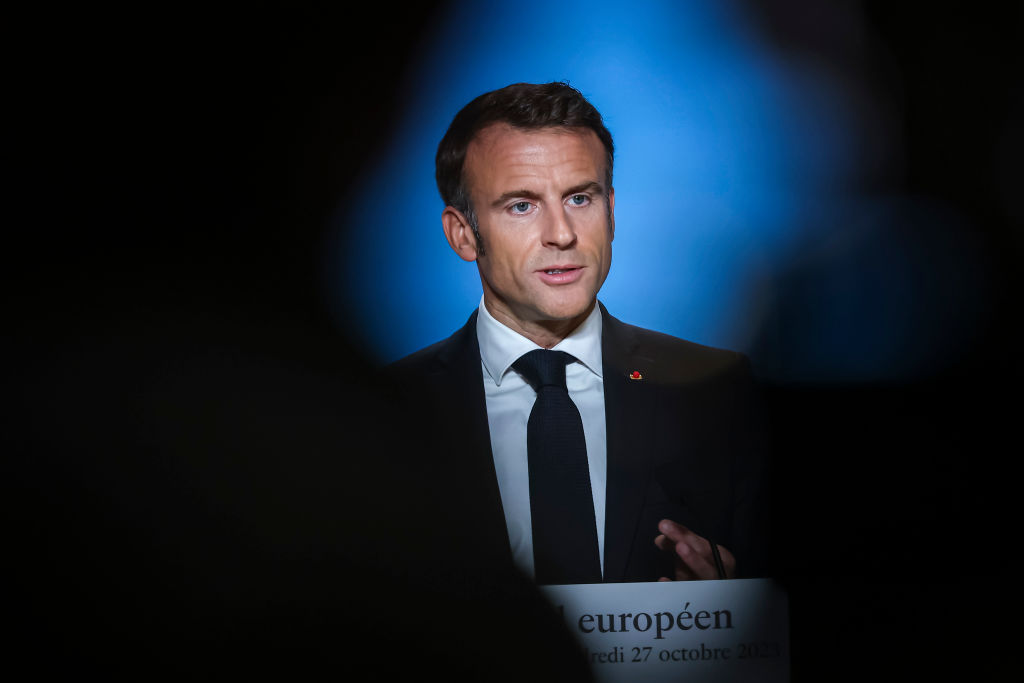 The French economy's Macron bubble is bursting
The French economy's Macron bubble is burstingCheap debt and a luxury boom have flattered the French economy. That streak of luck is running out.
-
 The Bank of England can’t afford to hike interest rates again
The Bank of England can’t afford to hike interest rates againWith inflation falling, the cost of borrowing rising and the economy heading into an election year, the Bank of England can’t afford to increase interest rates again.
-
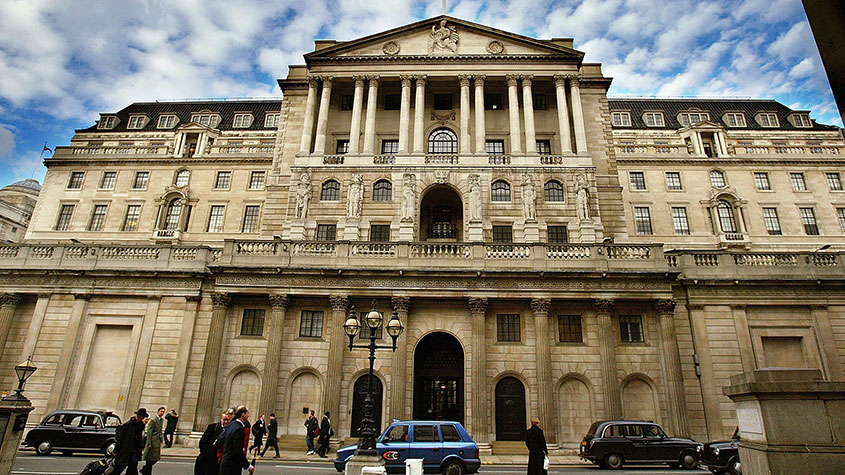 Bank of England raises interest rate by 0.5%
Bank of England raises interest rate by 0.5%News The Bank of England has raised interest rates once again, this time by 0.5%. This takes the bank’s base rate to 3.5%, the highest it’s been since 2008.
-
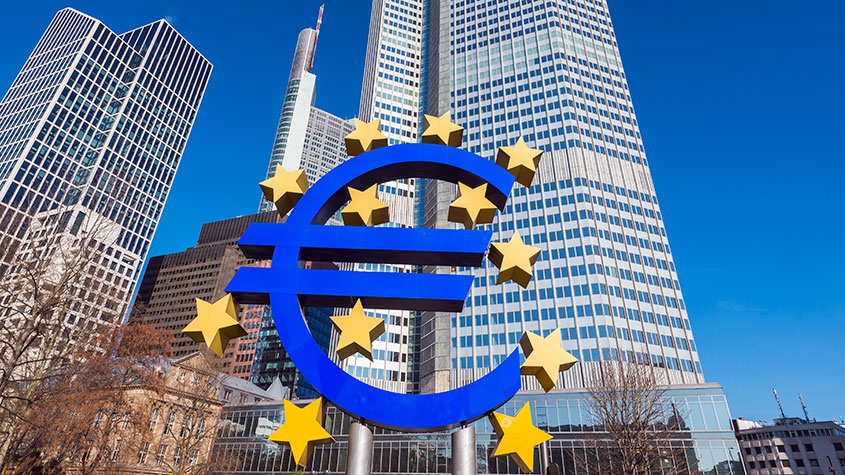 Eurozone inflation hits 10.7% in October
Eurozone inflation hits 10.7% in OctoberNews Inflation across the eurozone hit 10.7% in October. What does it mean for your money?
-
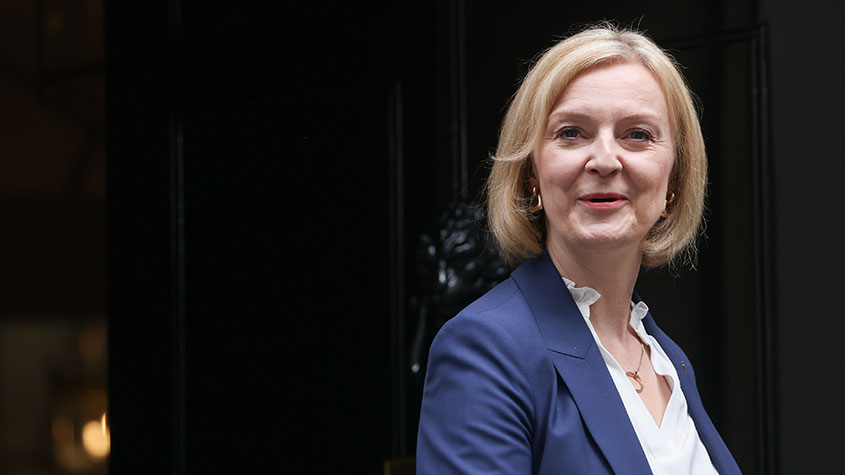 A forgotten lesson on the dangers of energy price caps
A forgotten lesson on the dangers of energy price capsAnalysis Liz Truss’s proposed energy price cap is an ambitious gamble. But a similar programme in Spain ended up being a fiasco, say Max King and Tom Murley. Here, they explain why Truss’s plan could be doomed to failure.
-
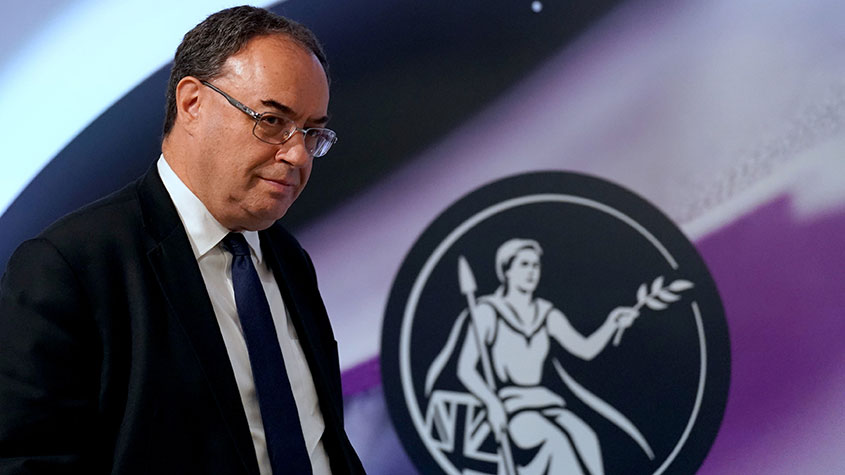 Central banks can’t solve our current economic problems
Central banks can’t solve our current economic problemsAnalysis Traditionally, as we hit recessionary times, central banks have lowered interest rates. But that’s not an option this time. If anyone can help dull the economic pain, it’s not the Bank of England, it’s the government. John Stepek explains why.